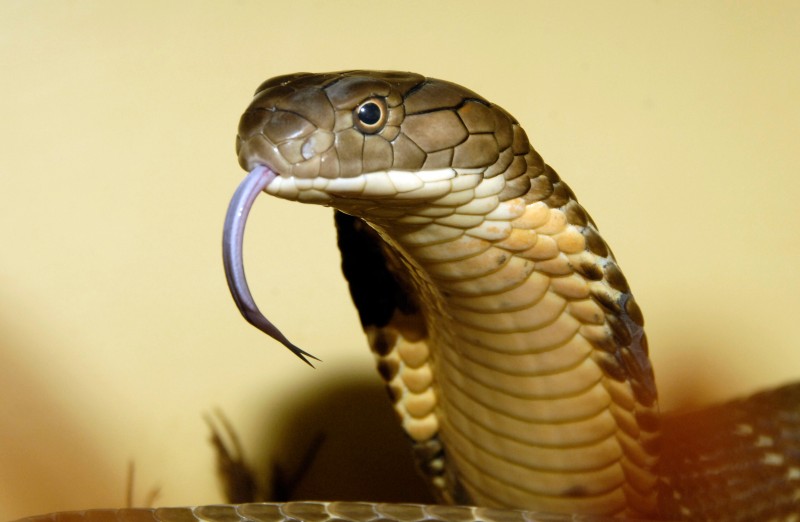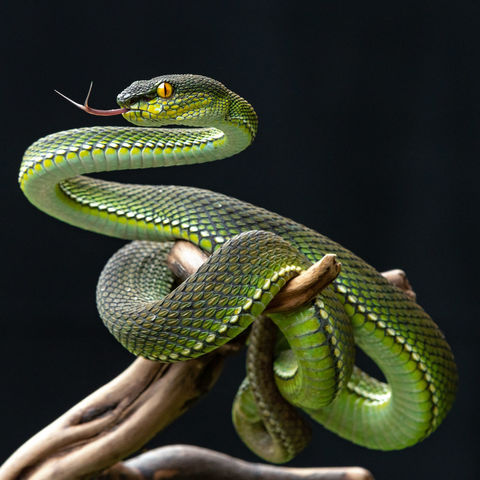On World Snake Day, a call to make a powerful antidote
/https://tf-cmsv2-smithsonianmag-media.s3.amazonaws.com/filer/16/a0/16a031f3-184a-4303-a724-3aa5ed34ceca/socialmedia.jpg) |
| image source google by-https://www.smithsonianmag.com |
Live Snake! Virginia's Natural Life Center Facilitates Virtual Conversations on World Snake Day
Today is World Snake Day, and the Wildlife Center of Virginia is praising the occasion with live-streaming virtual conversations.
The event will take place on the Facebook page of the Wildlife Center on Saturday, July 16 at 2 pm.
Visitor speakers will include:
 |
| image source google by-https://english.newstracklive.com |
Dr. Chris Jenkins, a leading proponent of the Orion Society and one of the pioneers in snake conservation
Bonnie Keller, a long-standing snake advocate who has recently focused staff on dealing with venomous snakes
Opportunity watchers will learn about the general history of Virginia's local snakes, the difficulties they appear in the wild, and the conservation measures taken to protect them.
The specific starting points of this opportunity are unclear. The Wildlife Center also offers tips on helping snakes throughout the year.
Help snakes all year round
Let the wild snakes be. If you see a snake in your yard, the best thing to do is to let it go to your liking. All things considered, this is probably reducing insects around your home and nursery. Try not to keep a wild snake as a pet. It is important to keep natural life in the wild where they need to be.
Pay attention to rejection techniques as the ready answer to snake-sealing your home and property. Try not to use sticky traps; They are cold-hearted and lead to late fighting and torment over the creature.
Be mindful of your environmental factors when climbing or investing energy outdoors. Try not to put your hands and feet in places where you cannot see. Winds often hide under logs and crevices.
Treat all snakes with the respect and pride they naturally possess. Try not to kill snakes. Killing one snake does not save individual snakes, and despite the fact that you may be uncomfortable around them, they are important figures in our biological system. It is against the law to kill snakes in Virginia, except if there is a danger to one's own well-being and safety.
Status of snakes in India
image source google by-https://www.eyeem.com
For any of us living in a metropolitan setting, experiences with snakes will generally be very uncommon. In any case, those living in the country India, particularly in a rural scene, are undeniably more successive and individual.
Such showdowns frequently abandon scars on the vast majority's brains and leave them dreading and in any event, detesting snakes for their entire lives.
A great many people in India grow up with practically no information on snakes around them, yet dread them regardless.
As a matter of fact, a larger part of our country's metropolitan populace would be entertained to discover that there are possibly a bigger number of snakes in metropolitan India than in the thick wildernesses. However, we know close to nothing about our wild neighbors.
Unfortunate waste administration rehearses in our urban communities lead to a flourishing rat populace, which thus prompts a flourishing populace of snakes, but those of simply commensal species, for example, cobras, rodent winds, Russell's snakes, and a couple of others.
In any case, the metropolitan occupants have essentially nothing to fear with regards to snakebites.
The story in rustic India is unfathomably unique — similar to two entirely inverse 'Indias' inside a similar geographic limit. Our nation drives the world in snakebite figures, passings from snakebite, and even instances of death toll capability.
Presently, on the event of World Snake Day — noticed yearly on July 16 to increment mindfulness about the various types of snakes from one side of the planet to the other — we endeavor to comprehend the ground truth of the human-snake struggle in India.
The Neglected Tropical Disease

image source google by-https://www.freepik.com
India records north of 10 lakh snakebites each and every year, which kill ~60,000 people and pass on one more 1.5 lakh to 2 lakh individuals with extremely durable incapacities. Studies have exhibited that 94% of the casualties are ranchers, the greater part of which have a place with the most financially useful age gatherings.
These are stunning figures for a sickness that the World Health Organization (WHO) properly calls an 'Ignored Tropical Disease'. Notwithstanding, they are just a lamentable part when contrasted with the number of snakes that are mercilessly and severely killed in struggle consistently the nation over.
One can't resist the urge to consider how India, quite possibly the earliest country on the planet to create a counter-agent a while back, stays frozen in opportunity with regards to protecting its residents from snakebite.
A heap of issues encompasses the issue of human-snake struggle, and not many have endeavored to address it, dissimilar to the contentions with uber fauna like tigers, elephants, bears, and others.
The intricacy of snakebite starts with the very truth that India, as a tropical nation, is honored with a variety of snakes matched by hardly any others. Among in excess of 300 types of snakes found in the country, almost 50 are venomous, of which 18-20 are medicinally huge — meaning they can cause a death toll or dreariness in their casualties if untreated.
Regardless of these numerous medicinally critical species, the solitary counter-agent accessible in India just focuses on the four most usually tracked down venomous species. This really overlooks those pieces of the nation where these four species are generally not found.
Further, for almost 10 years now, it has been widely known that the toxin of snakes, even inside similar species, differs by district altogether to the point of delivering the antidote inadequate in a few spots.
Snake toxin, created at the solitary source in the nation, has been seriously scrutinized for its falling apart quality and inflating costs by the antidote makers.
Thusly, herpetologists and toxin research researchers have for quite some time been asking the drugs to update their own cycles for the assembling of neutralizer, which will require essentially lower amounts of toxin and basically resolves the issue of expenses of toxin.
Past these issues, the significant obstacle at the clinic stage for the person in question is the absence of accessibility of neutralizer, and the way that snakebite is a medico-legitimate case which lifts undeniably more regulatory bands for a casualty and their family to go through.
If one somehow managed to sidestep these obstacles still, they are frequently confronted with a clinical club that is so inadequately prepared to treat snakebites that casualties are frequently transported between emergency clinics, just for a few to capitulate on the way.
Given these difficulties, casualties in country India decide to try not to go to an emergency clinic completely, and on second thought select confidence mending or quacks who offer ludicrous supernatural occurrence fixes.
The people who lose their life or appendage to a nibble are much of the time the individuals who have spent a few valuable hours or even days at a neighborhood healer prior to going to the right clinic to seek the right treatment.
Regardless of all difficulties, the reality stays that the main therapy for snakebite is counter-agent, managed by a prepared clinical expert in a medical clinic arrangement. Whenever done as such, snakebite is a totally treatable illness.
Avoidance being superior to fix is resoundingly evident on account of snakebite. Understanding snakes, keeping away from them coming into homes, and the right information on snakebite the executives can save great many resides consistently.
The Liana Trust and Humane Society International/India are attempting to make Karnataka's Mysore a model region for snake peace promotion.
Their endeavors are being passed through the dissemination of snakebite counteraction units, radio telemetry of venomous snakes, enormous scope effort and mindfulness programs in networks, limit working of clinical brotherhood on treatment conventions, limit working of private and government heros in sympathetic peacemaking and working with youngsters in government schools to assist them with finding out about snakes around them.
All the more such comprehensive projects the nation over, particularly in high-trouble states, will empower the counteraction of snakebites and hold families back from slipping into existence of destitution.
Sumanth Bindumadhav is the Acting Country Director of Humane Society International/India. He's been dealing with advancing conjunction with wild creatures through strategy and on-ground mediations, finishing unlawful natural life dealing, and limiting the working of government organizations, including the legal executive, for the last 10 years and a half.







0 Comments